Laura Mulvey
Laura Mulvey
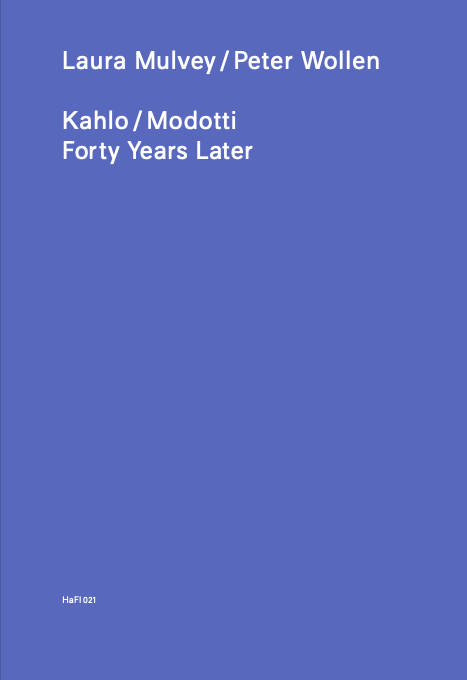
Kahlo/Modotti – Forty Years Later / 40 Jahre später
Kahlo/Modotti – Forty Years Later is the result of a visit by Laura Mulvey to the Department of Film Studies at the University of Zurich in November 2022. The booklet contains two texts: Mulvey's evening lecture at the Cabaret Voltaire, revisiting hers and Peter Wollen's exhibition and film on Frida Kahlo and Tina Modotti, and Wollen's 2003 essay on the phenomenon of "Fridamania."
Focusing on Wollen's and Mulvey's curatorial work and the accompanying film from 1982, the books aims to draw attention to this lesser-known side of their engagement with film and the visual arts. The binary juxtaposition of Kahlo/Modotti, which the film and the exhibition took as a structural principle in the 1980s, becomes a playful quartet in 2024 – Mulvey/Wollen/Kahlo/Modotti – which rearranges and updates the diverse work steps of retrieval, curatorship, exhibition, filmmaking, reception, and reflection.
Laura Mulvey (born 1941, Oxford) is a feminist film theorist and director.
Peter Wollen (1938-2019) was a British film theorist and filmmaker.
Edited by Pascal Maslon, Volker Pantenburg, Caroline Schöbi, Linda Waack.
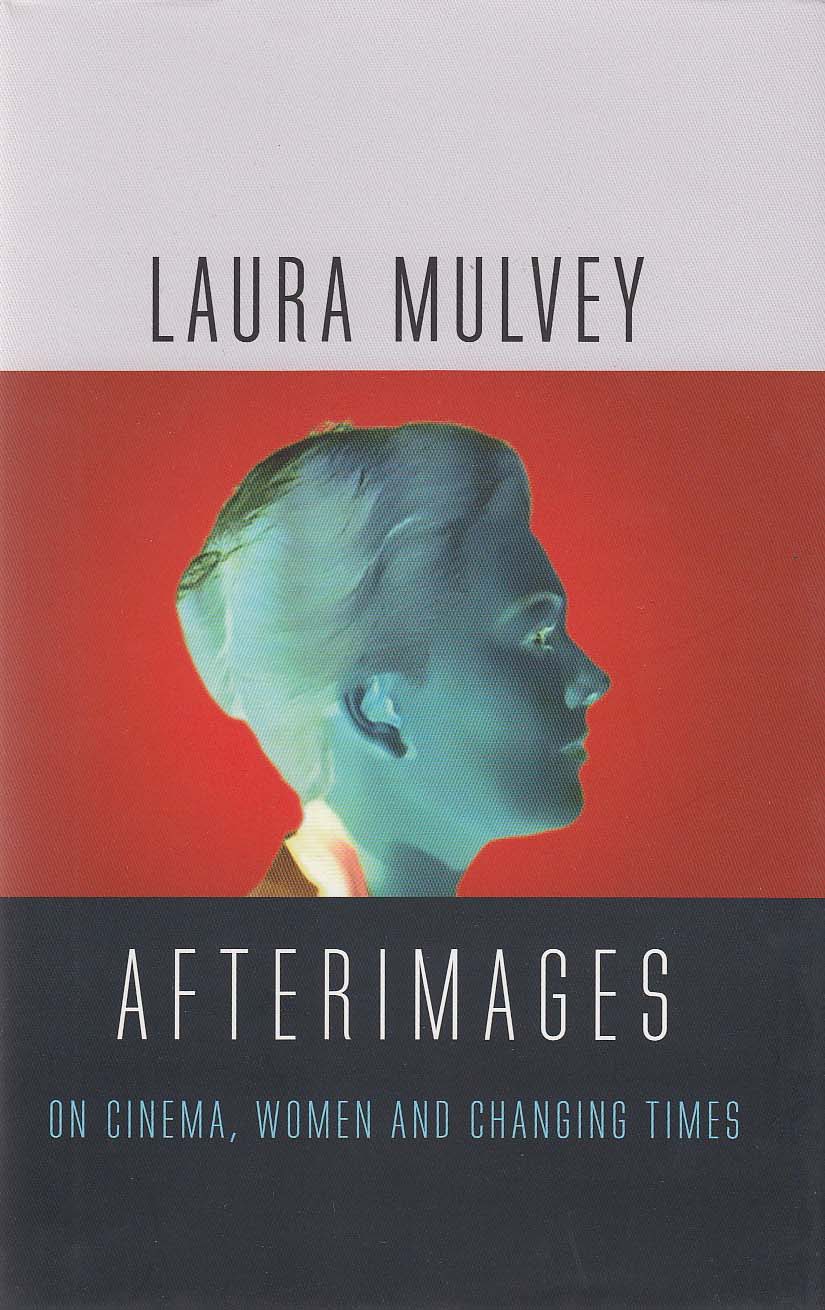
After Images
Marking a return for Laura Mulvey to questions of film theory and feminism, as well as a reconsideration of new and old film technologies, this urgent and compelling collection of essays is essential reading for anyone interested in the power and pleasures of moving images.
Its title, Afterimages, alludes to the dislocation of time that runs through many of the films and works it discusses as well as to the way we view them. Beginning with a section on the theme of woman as spectacle, a shift in focus leads to films from across the globe, directed by women and about women, all adopting radical cinematic strategies. Mulvey goes on to consider moving image works made for art galleries, arguing that the aesthetics of cinema have persisted into this environment.
Structured in three main parts, Afterimages also features an appendix of ten frequently asked questions on her classic feminist essay "Visual Pleasure and Narrative Cinema," in which Mulvey addresses questions of spectatorship, autonomy, and identity that are crucial to our era today.
Published Jan, 2020.
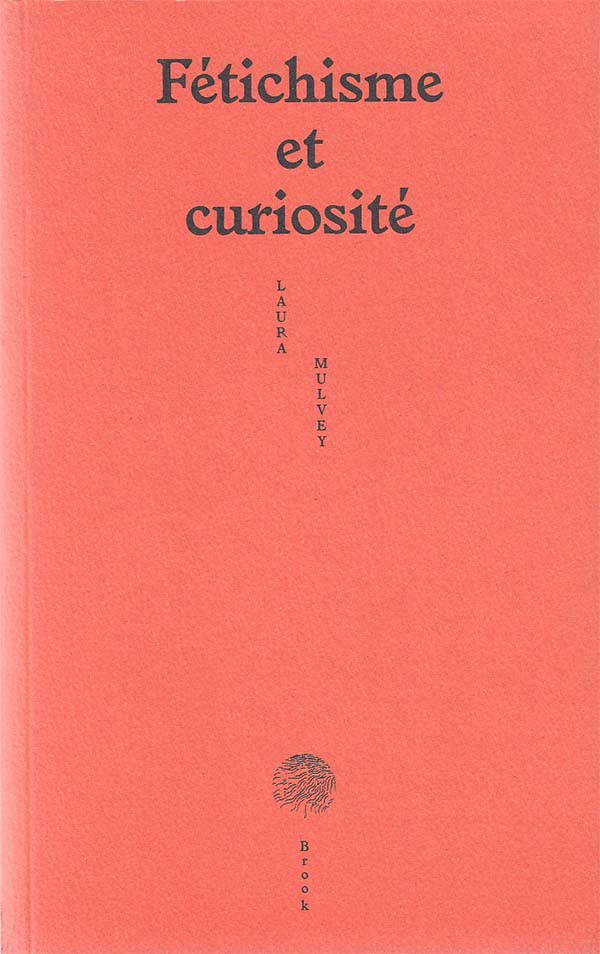
Fétichisme et curiosité
French edition of Laura Mulvey's writings which range from analyses of Xala, Citizen Kane and Blue Velvet, to an extended engagement with the creations of Native American artist Jimmie Durham and the feminist photographer Cindy Sherman. Essays explore the concept of fetishism as developed by Marx and Freud, and how it relates to the ways in which artistic texts work.
Translated from the English by Guillaume Mélère.
Preface by Clara Schulmann.
And more
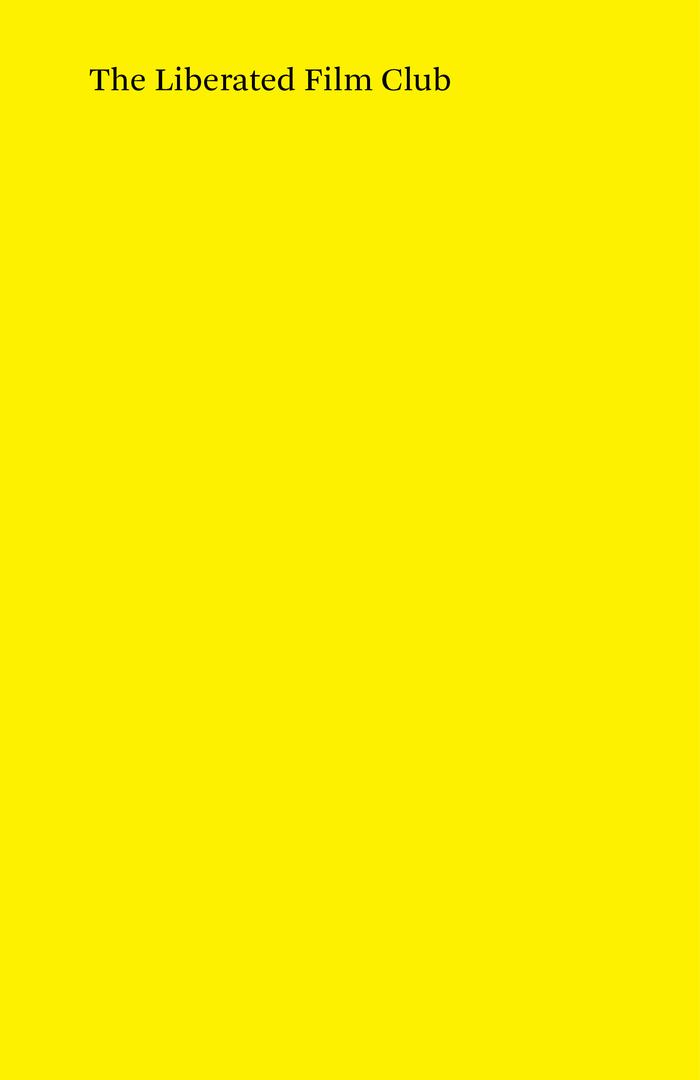
The Liberated Film Club
The Liberated Film Club—running from its birth to its death, 2016 to 2020—would guarantee a wide wing-span for critical conversation. Screening “Liberated film” (a loose category designed to scaffold the show), a guest would be invited to introduce a film; an audience seated to watch it through; but there’d be an interruption to that typical format. Neither the audience nor the guest would have any idea what film would be shown, and this anonymised format would invite broad and antagonistic perambulation on the what, the why and the how of film.
An interrogation of what we do when we sit in a cinema; a reckoning with the kind of posture we should assume when we frame a film for further talk. Playing with the various ways we should consider and reproach the institutions built around all of our cultures of making and the manners and methods of all of our cultures of consumption, the Liberated Film Club was a rare reflection on the act of reflection itself.
An anthology publication,
featuring contributions from
John Akomfrah;
Chloe Aridjis;
Dennis Cooper;
Laura Mulvey;
Chris Petit;
Mania Akbari;
Elena Gorfinkel;
Juliet Jacques;
Ben Rivers;
Dan Fox;
Sean Price Williams;
Adam Christensen;
Stewart Home;
Stephen Watts;
Tony Grisoni;
Gideon Koppel;
Astra Taylor;
Miranda Pennell;
Gareth Evans;
Adam Roberts;
Tai Shani;
Anna Thew;
Xiaolu Guo;
Andrea Luka Zimmerman;
William Fowler;
Athina Tsangari;
John Rogers;
Shama Khanna;
Shezad Dawood;
Damien Sanville;
& Stanley (& Winstanley) Schtinter.
(Eds.) Stanley Schtinter,
with Dominic J. Jaeckle
& Jon Auman

The Films of Laura Mulvey and Peter Wollen
This collection of Laura Mulvey and Peter Wollen's film scripts vividly evokes the close connection between their influential work as theorists and their work as filmmakers. It includes scripts for all six of Mulvey and Wollen's collaborative films, Wollen's solo feature film, Friendship's Death (1987), and Mulvey's later collaborations.
Each text is followed by a new essay by a leading writer, offering a critical interpretation of the corresponding film. The collection also includes Wollen's short story Friendship's Death (1976), the outlines for two unrealised Mulvey and Wollen collaborations, and a selection of scanned working documents. The scripts and essays collected in this volume trace the historical significance of a complex cinematic project that brought feminist, semiotic and psychoanalytic concerns together with formal devices and strategies.
The book includes original contributions from Nora M. Alter, Kodwo Eshun, Nicolas Helm-Grovas, Esther Leslie, Laura Mulvey, Volker Pantenburg, Griselda Pollock, B. Ruby Rich and Sukhdev Sandhu.

DWOSKINO. The Gaze of Stephen Dwoskin
Henry K Miller, Rachel Garfield
DWOSKINO. The Gaze of Stephen Dwoskin is the culmination of a three year research project, The Legacies of Stephen Dwoskin, at the University of Reading where his archive is housed. The book is a unique visual distillation of Dwoskin’s life and times, with hundreds of never-seen-before images taken from his archive, and texts by among others Laura Mulvey, Raymond Bellour, Raymond Durgnat, and Dwoskin himself.
Stephen Dwoskin (1939–2012) began his filmmaking career in the New York underground scene of the early 1960s, then moved to London in 1964, where he became a leading figure in avant-garde film, and was one of the founders of the London Filmmakers Co-operative (now LUX). His early works, such as Dyn Amo (1972), are synonymous with the male gaze. Laura Mulvey wrote that he ‘opened a completely new perspective for me on cinematic voyeurism’ and his work was a major influence on her influential work on the male gaze in cinema. From the mid-1970s, he focused his camera upon his own body, afflicted by polio during childhood, in such films as Behindert (1974) and Outside In (1981).
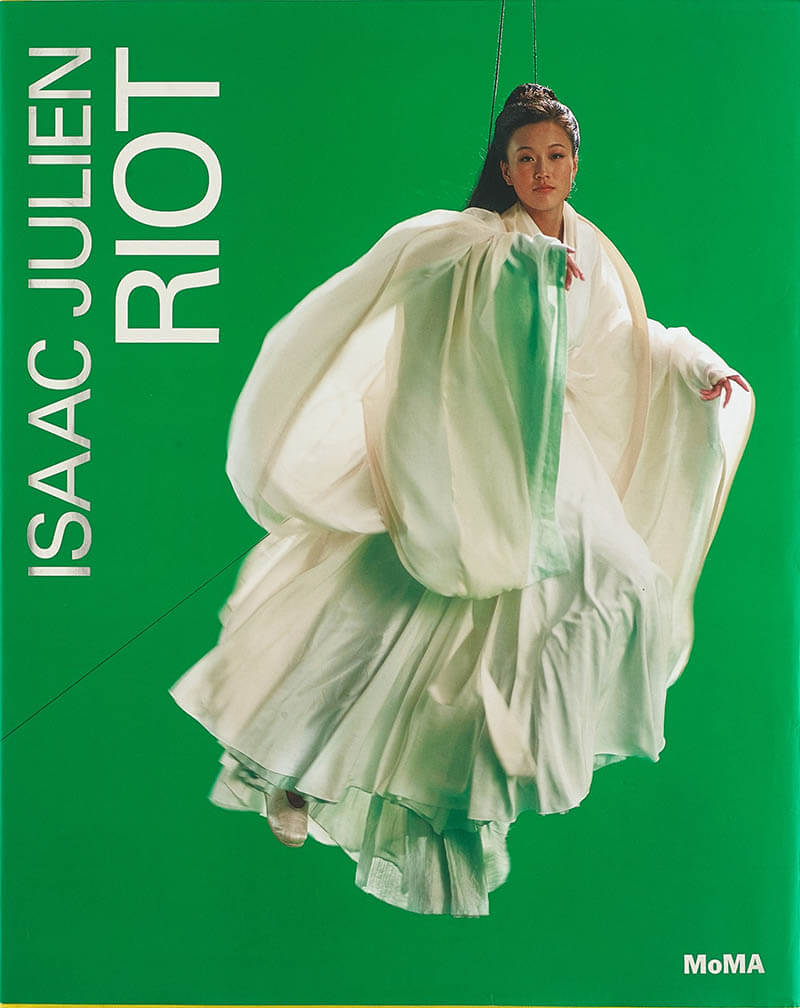
Riot
Riot is an intellectual biography of artist and filmmaker Isaac Julien (born 1960), looking at key moments in his career and discussing the influences that shaped them. Julien's trail-blazing career has moved across film and art, documentary, biography, narrative film and multi-screen installation, and has drawn on influences as disparate as silent cinema, cultural studies, Chinese myth and pirate radio culture. Riot is the first career-long overview on Julien, situating his work in the context of his personal and intellectual development: the friendships, mentors, night clubs, films, politics, records and the artworks that informed his practice. The backdrop to Julien's own story is a collage of some of the most important political and cultural events of the past 30 years: Thatcherism and the rise of neo-liberalism, the AIDS epidemic, punk rock, social riots, the globalization of the art market and the movement of filmmakers into the gallery.
With Texts by: Giuliana Bruno, Paul Gilroy, Stuart Hall, Bell Hooks, Kobena Mercer, Laura Mulvey and Mark Nash.
Published 2014

Chantal Akerman Retrospective Handbook
A book from A Nos Amours gathering up all the research and writing that went into making the London Chantal Akerman retrospective possible.
Between 2013 and 2015, A Nos Amours presented in London a complete retrospective of the films of the celebrated film-maker Chantal Akerman. This was a complex and demanding project as rights and screening copies turned out to be widely scattered and difficult to access. The research needed to present this retrospective is offered in this book so that others may easily follow suit.
Also included are the texts, journalism and blogging that was offered to the audience as a means to engage with film-works that are at once radical, heterodox and, in many cases, little known. The book aims to be accurate and a reliable source of detailed information about the films.
Texts are included that provide invaluable insight, including by:
Raymond Bellour, Richard Brody, Ivone Margulies, Marion Schmid and Ginette Vincendeau.
Laura Mulvey has written an expansive foreword, surveying Akerman's achievement, making use of the book as an aide-mémoire for what stands as one of the astonishing bodies of work in all cinema:
"As a collage of writing of many different kinds, the Handbook crucially bears witness to the effect that Akerman has had on the film community, from her earliest movies until her last... The high quality of the texts included in the book are all a reminder of the way that her ‘cinematic’ qualities have advanced our understanding of film." (Laura Mulvey preface)

Another Gaze Journal 01
The first issue contains interviews with women including Carolee Schneemann, Mania Akbari, Laura Mulvey, Alice Diop, Bette Gordon, and Lis Rhodes. It contains pieces on the films of women including Kathleen Collins, Sally Potter, Chantal Akerman, Moyra Davey, Camille Henrot, Naomi Kawase, Germaine Dulac, Alice Guy-Blaché.